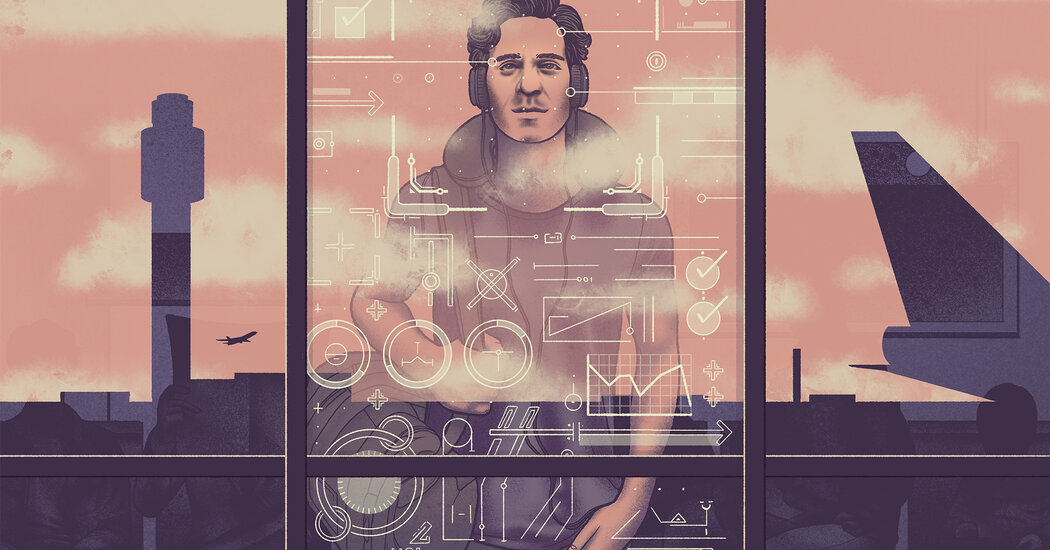On a recent Thursday morning in Queens, travelers streamed through the exterior doors of La Guardia Airport’s Terminal C. Some were bleary-eyed — most hefted briefcases — as they checked bags and made their way to the security screening lines.
It was business as usual, until some approached a line that was almost empty. One by one, they walked to a kiosk with an iPad affixed to it and had their photos taken, as a security officer stood by. Within seconds, each passenger’s image was matched to a photo from a government database, and the traveler was ushered past security into the deeper maze of the airport. No physical ID or boarding pass required.
Some travelers, despite previously opting into the program, still proffered identification, only for the officer to wave it away.
This passenger screening using facial recognition software and made available to select travelers at La Guardia by Delta Air Lines and the Transportation Security Administration, is just one example of how biometric technology, which uses an individual’s unique physical identifiers, like their face or their fingerprints, promises to transform the way we fly.
This year could be the “tipping point” for widespread biometrics use in air travel, said Henry Harteveldt, a travel industry analyst for Atmosphere Research. Time-consuming airport rituals like security screening, leaving your luggage at bag drop and even boarding a plane may soon only require your face, “helping to reduce waiting times and stress for travelers,” Mr. Harteveldt said.
In the United States, major airlines have increasingly invested in facial recognition technology as have government agencies in charge of aviation security. Overseas, a growing number of international airports are installing biometrics-enabled electronic gates and self-service kiosks at immigration and customs.
The technology’s adoption could mean enhanced security and faster processing for passengers, experts say. But it also raises concerns over privacy and ethics.
Dr. Morgan Klaus Scheuerman, a postdoctoral researcher at the University of Colorado who studies the ethics of artificial intelligence and digital identity, said many questions have emerged about the use of biometrics at airports: How are the systems being trained and evaluated? Would opting out be considered a red flag? What if your documents don’t match your current appearance?
“I’m sure many people feel powerless to stop the trajectory,” Dr. Scheuerman said.
In…
Click Here to Read the Full Original Article at NYT > Travel…
